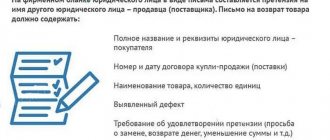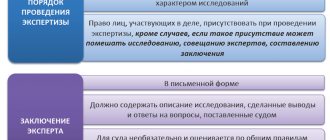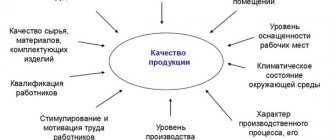Quality control of supplied goods in accordance with 44-FZ and 223-FZ is important for both suppliers and customers, including under commercial contracts.
According to 44-FZ and 223-FZ, competition occurs only at the price of the proposed contract, and it is generally accepted that the customer does not have the right to choose suppliers. In fact, the customer can allow only certain goods to participate in the tender and thereby influence the quality of procurement. The supply of counterfeit goods of inadequate quality can be prevented at the stage of drawing up tender documentation.
The state is also interested in high-quality supplies and optimal expenditure of budget funds. Therefore, it is no coincidence that in 2016 a program to combat illegal trafficking in industrial products was adopted, and in 2021 an action plan was developed to ensure the quality of goods and services under government contracts. Pipes used by public utilities will eventually end up at a facility used by a government agency. As a result, all quality control issues will be reduced to quality control specifically at acceptance based on the results of tenders under 44-FZ and 223-FZ.
How to determine the initial maximum contract price (IMCP)
If the NMCC is determined by the method of comparable market prices, you need to request commercial offers and invoices for payment from large well-known manufacturers, and not use advertising materials from websites.
Before bidding, the maximum contract price must be determined. A common problem for customers is to obtain high-quality commercial proposals to determine such a price.
Large organizations most often provide prices that exist in reality. And queries in search engines often result in unrealistic prices that suppliers cannot provide. Companies specifically place them to significantly increase the number of calls from customers.
For example, the water utility in Volgograd intends to purchase polyethylene pipes. The employee responsible for determining the NMCC begins monitoring prices by entering the query “PE pipe Volgograd buy” into a search engine. The system produces results from links, the first of which are always advertising. By clicking on them, you can see prices of 125 rubles/kg, 114 rubles/kg, 118 rubles/kg. While the cost of polyethylene alone for pipe production is 117 rubles/kg. Who can agree to participate in such a purchase? Only counterfeit manufacturers, since they deliberately produce pipes from raw materials that do not meet the requirements of the standards.
If information on proposals is not up to date, then the contract price will not correspond to market conditions, and a good supplier will not be able to participate in such a contract.
It is best to request quotes from large, well-known suppliers who can quote prices based on actual invoices or quotes. They may be overestimated, but they certainly will not be underestimated. Prices must be supported by official documents with signatures. In this case, the one who provided the commercial proposal is responsible for the information contained in it.
Article 518 of the Civil Code of the Russian Federation. Consequences of supplying goods of inadequate quality (current version)
1. In case of delivery of goods of inadequate quality to the buyer, the buyer has the right:
- demand a proportionate reduction in the purchase price;
- demand that defects in the goods be eliminated free of charge within a reasonable time;
- demand reimbursement of your expenses for eliminating defects in the goods.
However, if the buyer notifies the supplier in writing about the delivery of goods of inadequate quality, the buyer will not be able to present the above requirements.
Since the supplier and the buyer are interconnected persons in the relationship under the supply contract, the buyer has the right to present to the supplier the demands of consumers, to whom the buyer will sell goods of inadequate quality, purchased by the consumer from the buyer, who carries out activities in the sale of goods purchased from the supplier. In other words, the buyer has the right to make demands on the supplier to replace goods of inadequate quality that were returned to the buyer by the consumer.
In our opinion, such a requirement can be made if two conditions are met:
the inadequate quality of the goods could not have been detected by the buyer upon receipt and inspection of the goods;
the buyer satisfied the requirements of the consumer who purchased this product, since the buyer, as a seller or seller-supplier, is responsible to the consumer for the transfer of goods of inadequate quality.
We believe that the commented article should be supplemented with provisions giving the buyer the right to demand compensation for losses from the supplier in the event that the consumer returns to him a product of inadequate quality, purchased from the supplier and sold to the consumer.
2. Judicial practice:
— Resolution of the Federal Antimonopoly Service of the West Siberian District dated April 12, 2013 N F04-938/13 in case N A27-14322/2012;
— Resolution of the Federal Antimonopoly Service of the North-Western District dated April 29, 2003 N A56-31714/02;
— Resolution of the Eighth Arbitration Court of Appeal dated December 17, 2013 N 08AP-10103/13;
— Resolution of the Federal Antimonopoly Service of the Far Eastern District dated July 10, 2012 N F03-2536/2012 in case N A16-1327/2010;
— Resolution of the Federal Antimonopoly Service of the Moscow District dated February 15, 2012 N F05-13959/11 in case N A40-45550/2011-138-377;
— Resolution of the Federal Antimonopoly Service of the Central District dated March 2, 2011 N F10-21/2011 in case N A23-1902/10G-17-68;
— Resolution of the Federal Antimonopoly Service of the Ural District dated September 14, 2006 N F09-8176/06-S4;
— Resolution of the Federal Antimonopoly Service of the North-Western District dated May 19, 2004 N A56-18067/03;
— Resolution of the Nineteenth Arbitration Court of Appeal dated 07/07/2014 N 19AP-3588/14.
Comment source:
“COMMENTARY ON THE CIVIL CODE OF THE RUSSIAN FEDERATION. PART TWO OF JANUARY 26, 1996 No. 14-FZ"
ON THE. Barinov, S.A. Baryshev, E.A. Bevzyuk, M.A. Belyaev, T.A. Biryukova, Yu.N. Vakhrusheva, R.R. Dolotina, N.V. Elizarova, R.Yu. Zakirov, N.A. Zakharova, P.Z. Ivanishin, S.Yu. Morozov, T.N. Mikhaleva, 2014
How to notify about an examination
It is useful to indicate in the technical specification that you are going to conduct an examination of the quality of the delivered goods. Please note to the supplier that you are aware of the quality problem with the products supplied.
Include a reminder in the technical specifications and the likelihood of delivering counterfeit goods will decrease. Moreover, highlight the warning in red font so that it is noticeable.
An example of such a memo: “Attention to procurement participants! The customer conducts an examination for compliance with <enter the name of the product> GOST <indicate a specific GOST and decipher it>. If the quality of <insert the name of the product> does not correspond to the attached passports and certificates, the contract will be terminated unilaterally, and the supplier will be included in the register of unscrupulous suppliers.”
How to confirm deficiencies
There are no legal requirements for evidence to confirm defects in the goods upon delivery.
Typically, buyers use an expert's opinion - this is a reliable document. If the examination was not carried out for the consumer, it is ordered for a claim to the supplier. The expert is asked two questions: what is the defect in the product and why did it arise? The supplier is invited to the examination.
If the product has a warranty, the supplier is obliged to prove that the defects appeared due to improper use - Art. 476 of the Civil Code of the Russian Federation.
How to submit a complaint to a supplier
Read your delivery agreement. Perhaps one of the sections contains instructions for the buyer to send a claim (complaint) to the supplier when the product is returned by the end consumer. If there is one, follow it.
The general algorithm is:
- File a claim. Write down under which contract you purchased the product with the number and date, how you returned the product, and what flaw you found.
- Specify the requirement for replacement of the goods and compensation for losses within a reasonable period of time.
- Write contact details: phone number of the store manager or director.
- Attach copies of evidence: expert opinion, consumer application for return, money back check, check for payment of the examination.
- Send the claim to the supplier by registered mail with notification to the legal address or the address for claims from the contract.
In what cases is a product considered to be of poor quality?
Currently, based on the provisions of the current legislation, a product is recognized as a low-quality product in the following cases:
- the goods provided under the supply agreement do not fully or partially comply with the terms of the drawn up agreement , the attached specifications or other annexes to such an agreement;
- the goods provided under the contracts do not meet the established requirements that were formed within the framework of current regulations or standards, for example, GOSTs or technical regulations;
- it is impossible to apply existing business customs to the delivered goods if they were established for various groups of goods by large public and private organizations;
- the use of the product for the purposes for which this or that product is usually used is impossible for various reasons;
- the goods that were purchased cannot be used for the purposes for which they were purchased , while the legal entity or individual who supplied the goods knew that the goods thus do not correspond to the purposes for which they were purchased (and the purposes of use were specified in the contract under which the goods were purchased);
- the goods delivered under the contract do not comply with the provisions described in the sample , or the goods themselves do not correspond to the descriptions or samples, if the goods were sold as presented and corresponding to the sample.
In cases where at least one condition is met in relation to the delivered goods, the goods can be said to be considered of poor quality, and the rules of civil and civil procedural law on termination of the contract may be used in relation to them.
Foreign objects
A supply agreement was concluded between a trading enterprise and a manufacturing company, under the terms of which the supplier had to deliver goods to the customer in batches (raw meats were purchased), and the buyer was obliged to accept and pay for it. At the same time, the acceptance procedure was prescribed as follows: a random check of the quantity and quality of products was allowed, with the results of the check being distributed to the entire batch, and its result was recorded in a two-sided act and invoice.
When the buyer once again received two consignments of goods, it was accepted without question by a company representative, which is confirmed by the signatures and seal on the invoices. And after some time, when they tried to make the final product from the raw materials that arrived in these batches, they discovered completely “foreign objects” in it - there were metal shavings in the minced meat supplied by the partners. Production was immediately suspended, and a letter was sent to the seller, informing them of the buyer’s desire to return the “iron-enriched” raw materials “... due to its non-compliance with the required quality standards.”
The wording of the terms of the relationship between the parties when the buyer discovers that the product does not meet the declared quality without the presence of the supplier may look, for example, like this:
“... 5.1. Upon receipt of the goods, the buyer is obliged, at his own expense, to check the quality indicators of the goods that cannot be determined by visual inspection (quality check). If, during the quality check of the goods received by the buyer from the carrier, it is revealed that the goods do not comply with the terms of the contract, the buyer is obliged to immediately suspend acceptance of the goods and call a representative of the supplier. After the arrival of the supplier’s representative, he, together with the buyer and the carrier, conduct a joint check of the quality of the goods. Based on its results, a document is drawn up reflecting the results of the quality check, which is signed by all participants in the check. ..."
However, in response to this demand, the partners said that, in principle, they could take the batch back, but only in order to check its quality themselves. And only after verification they will decide whether they agree to compensate for the losses announced by the buyer.
Then the situation developed as follows. The minced meat “with filler” was sent back to the supplier, but they did not wait for the end of the inspection, and four days after export they sent a claim to their business partner. In it, the buyer offered the supplier to return the money for the “iron” minced meat within a week, as well as to compensate for substantial losses in the amount equal to the cost of the finished product, which now cannot be sold to consumers. The claim was accompanied by a statement of the cost of semi-finished products that had already been manufactured and were immediately rejected.
As the recipients expected, the response from the supplier came exactly seven days later. However, in this review it was stated that the supplier company refuses to transfer the amounts indicated to the buyer, since the latter did not provide any damages. After such a response, representatives of the production company decided to go to arbitration with a claim for recovery of millions in damages arising in connection with the delivery of low-quality goods.










